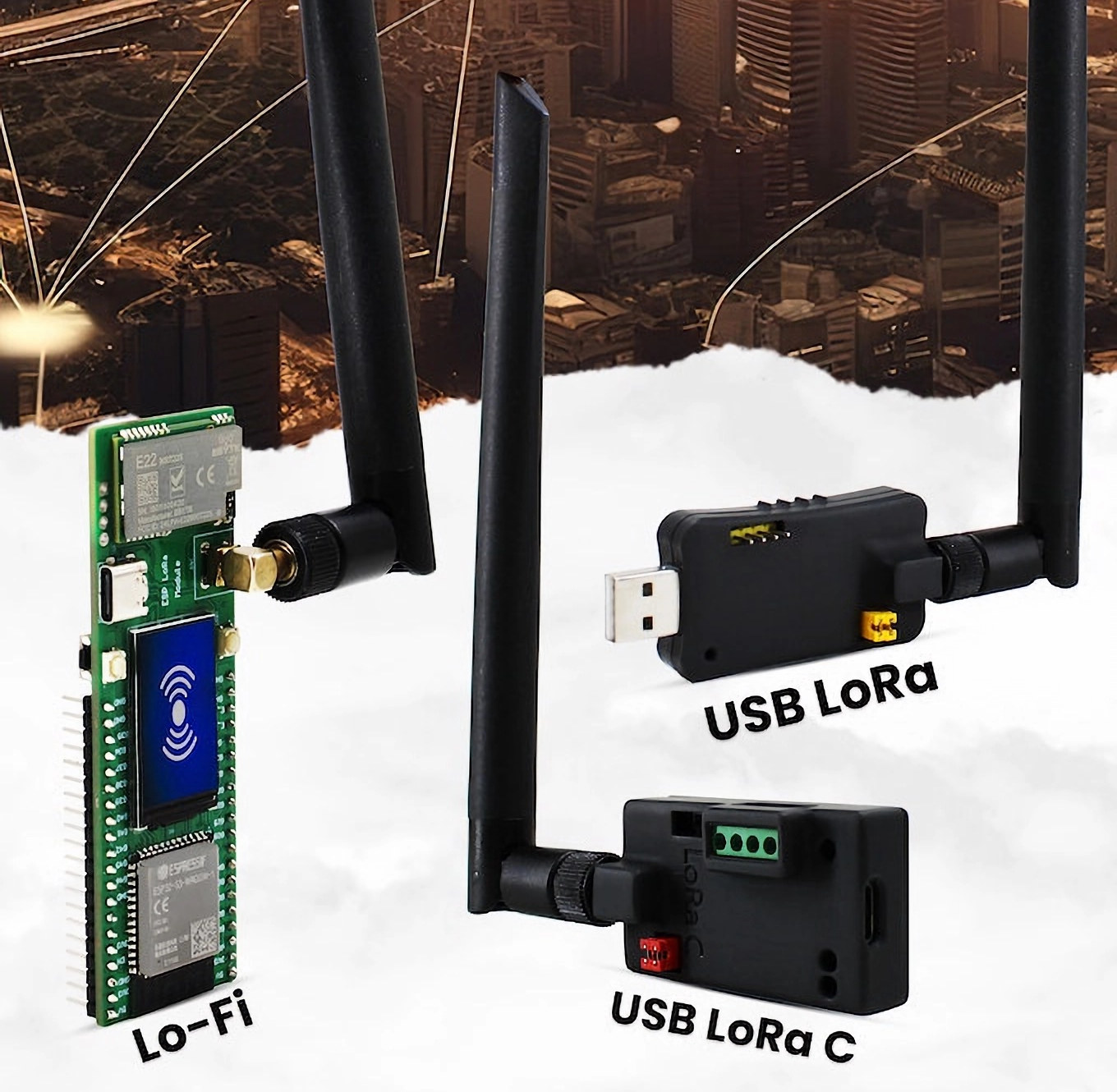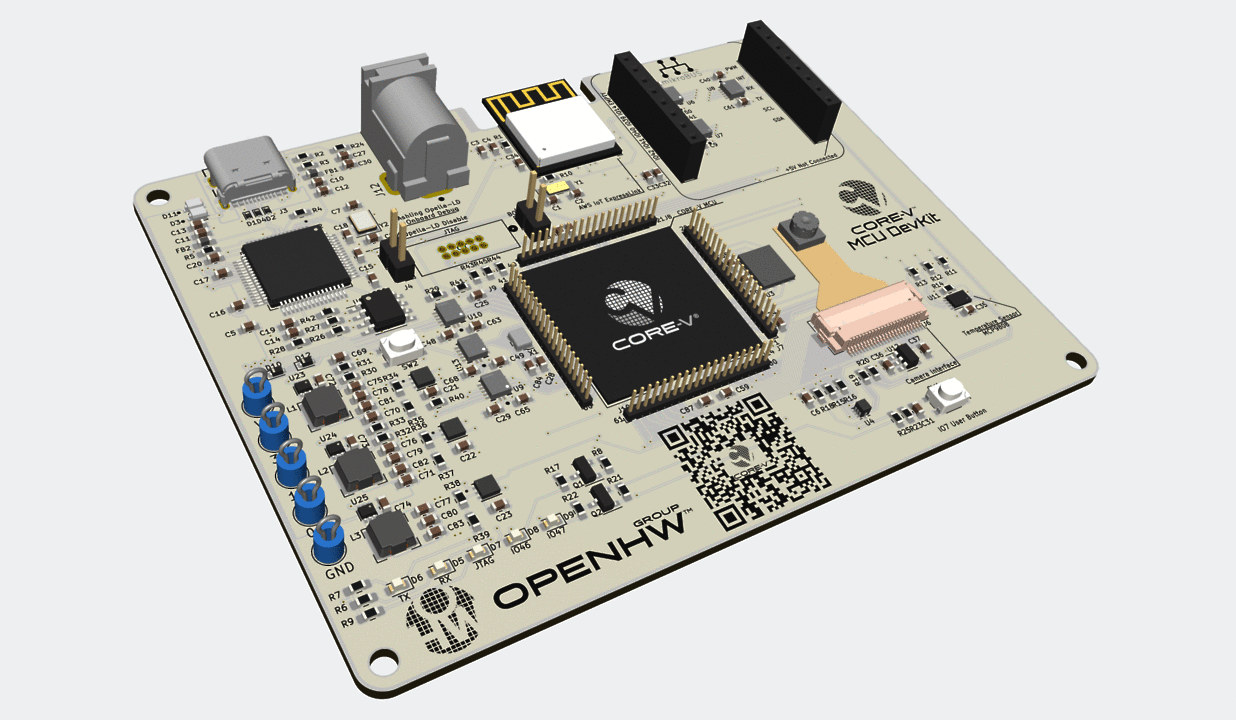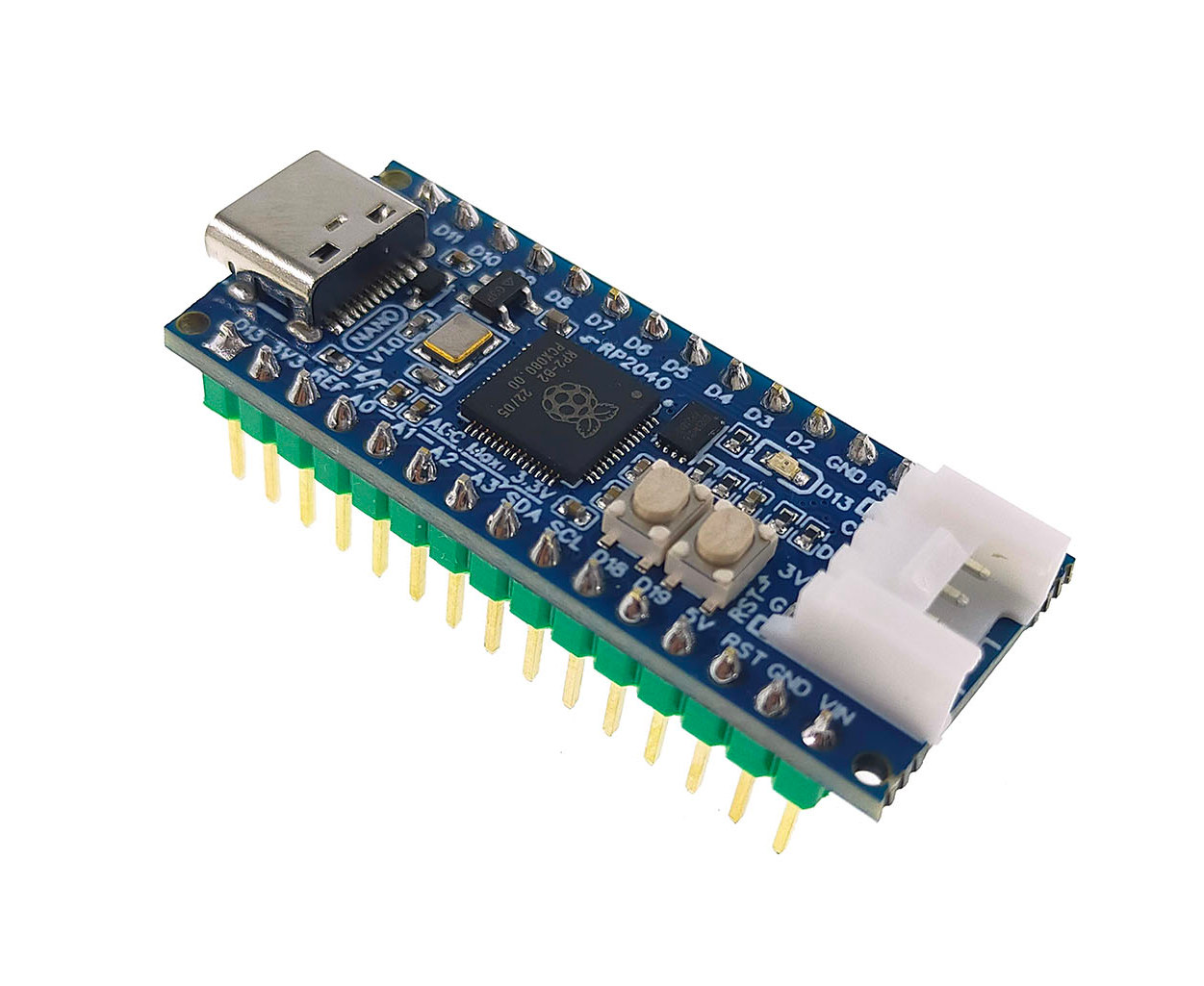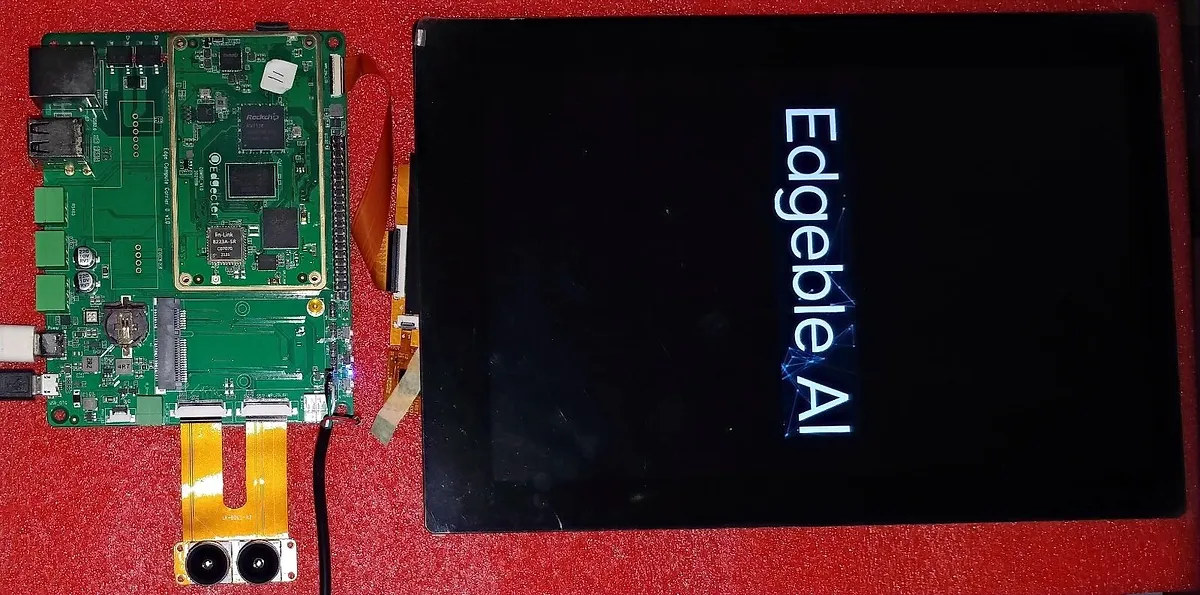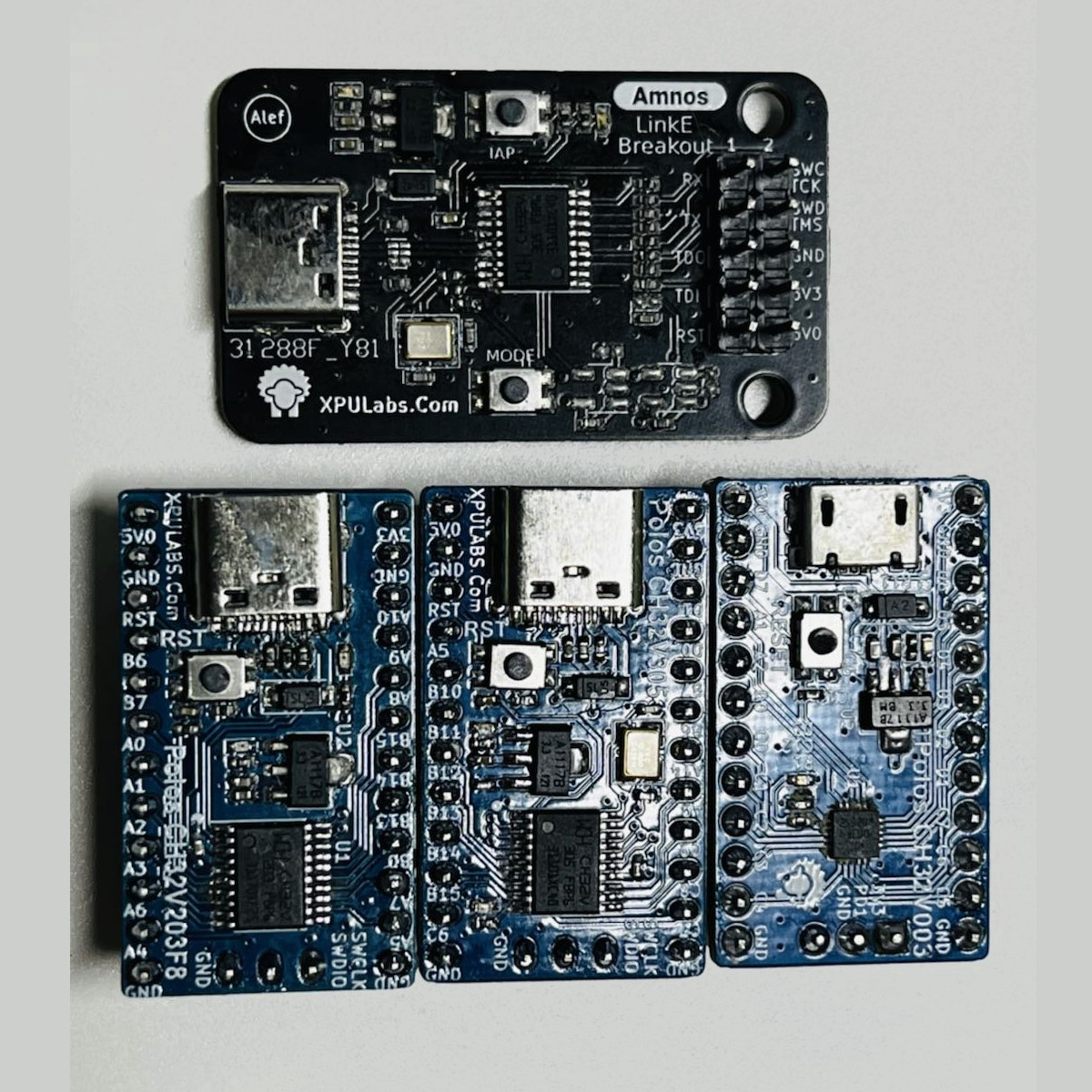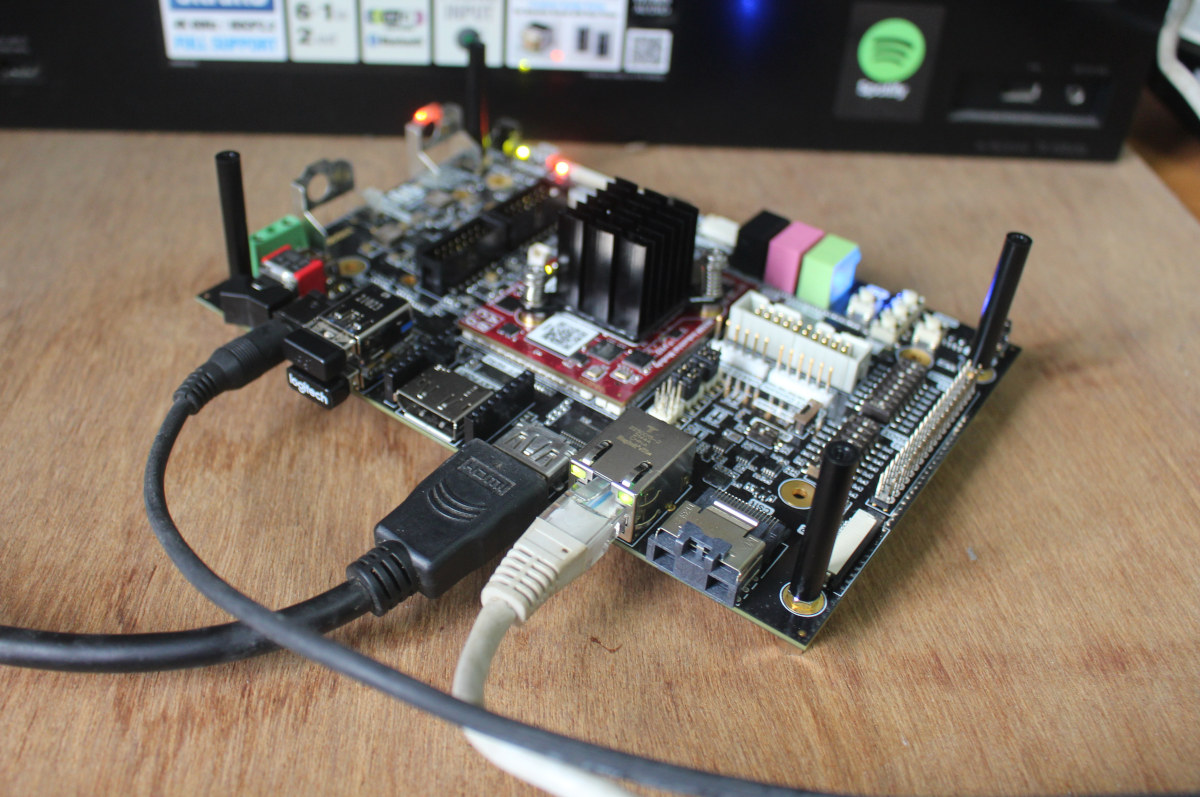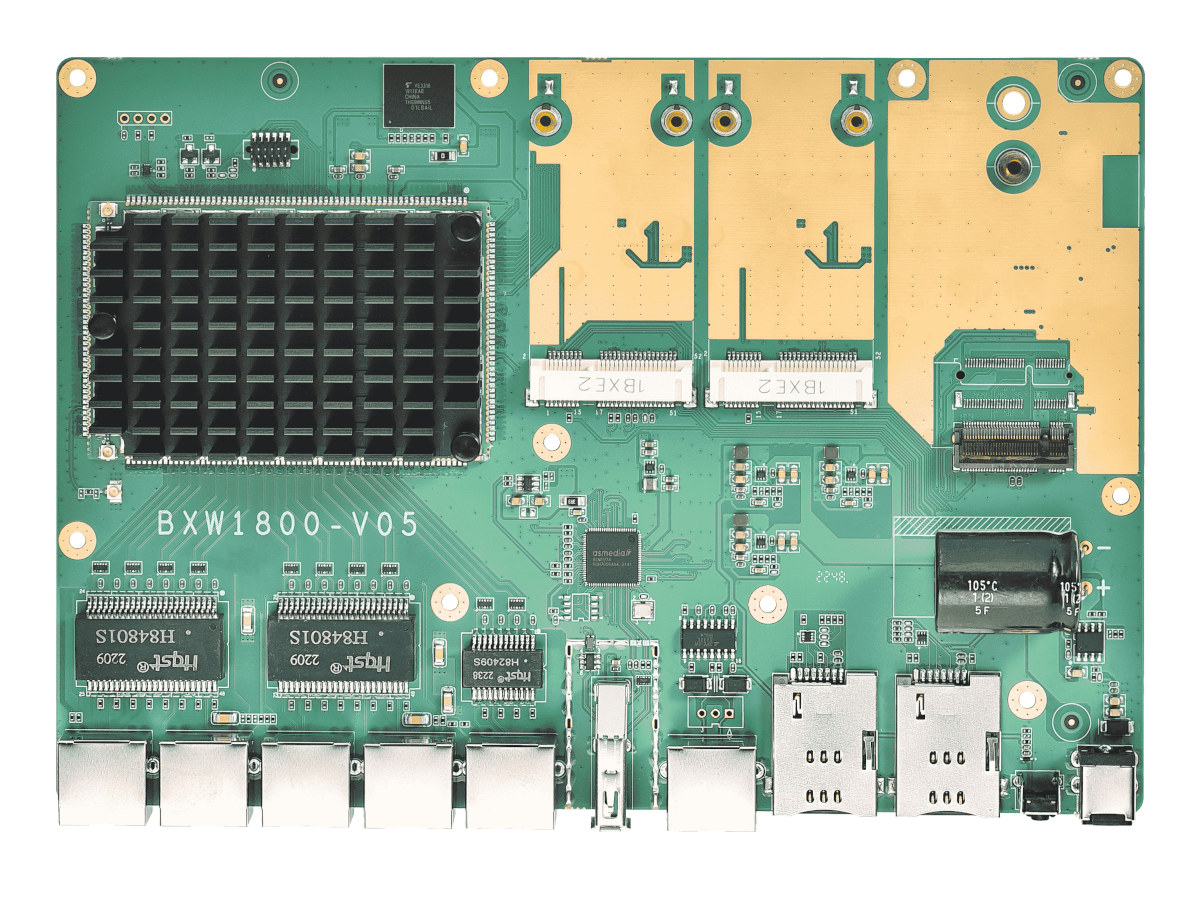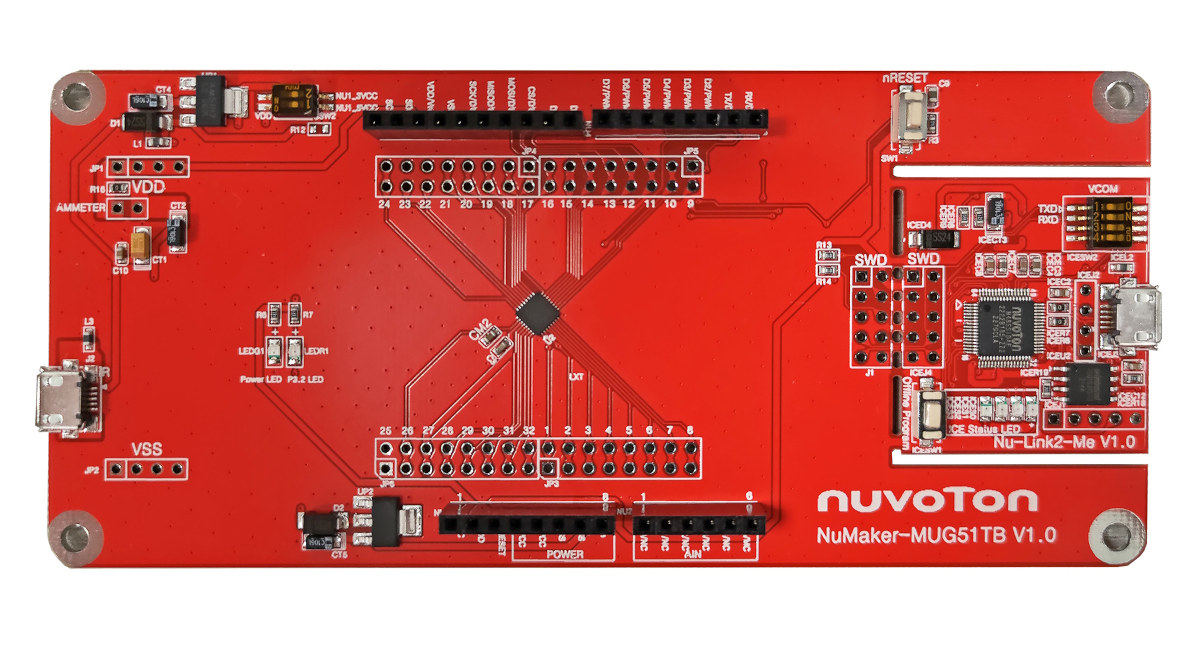SB Components’ Lo-Fi is an ESP32-S3 board equipped with a LoRa module for low-power long-range connectivity, and the company has also introduced two LoRa USB dongles with either Type-A or Type-C connectors. Lo-Fi specifications: Wireless module ESP32-S3-WROOM-1: SoC – ESP32-S3 dual-core LX7 microprocessor @ up to 240 MHz with Vector extension for machine learning, WiFi 4 & Bluetooth 5 LE/Mesh Memory – 8MB OSPI PSRAM Storage – 8MB QSPI flash PCB antenna Dimensions – 25.5 x 18.0 x 3.1 mm Unnamed LoRa module Tx power of up to 22dBm (160mW) adjustable by software Rx sensitivity of up to -138 dBm ISM bands – 433MHz, 868MHz, and 915MHz Range – Up to 5km range Data rates – 300 bps to 62.5 kbps RoHS compliance External LoRa antenna Display – 1.14-inch TFT display with 240×135 resolution USB – 1x USB Type-C port for programming and power Expansion – 2x 20-pin GPIO headers […]
CORE-V MCU Devkit features open-source 32-bit RISC-V core, Amazon AWS IoT connectivity, Mikrobus expansion, VGA camera
The CORE-V MCU DevKit is an open-source hardware board based on the CORE-V microcontroller featuring the open-source OpenHW CV32E40P0 RISC-V MCU core and a Quicklogic ArticPro 2 eFPGA. The board offers wireless connectivity to Amazon AWS through an ESP32-C3 AWS IoT ExpressLink module, a MikroBus connector for expansion, a VGA camera module, JTAG and serial debugging, as well as a temperature sensor and a few buttons. The development kit can be powered by its USB Type-C port (5V) or a DC jack taking 5V to 18V DC. CORE-V MCU devkit specifications: Microcontroller – CORE-V MCU OpenHW CV32E40P RISC-V processor core (in-order 4-stage RISC-V RV32IMFCXpulp CPU based on RI5CY from PULP-Platform) with 512KB SRAM, boot ROM Quicklogic ArticPro 2 eFPGA Storage – 4MB QSPI flash Wireless – Espressif AWS IoT ExpressLink Module for AWS IoT cloud interconnect Camera – Himax HM01B0 ultra-low-power QVGA (320×240) CMOS image sensor as found in the […]
RP2 Nano is a $6.6 Raspberry Pi RP2040 board with Arduino Nano form factor
ArtronShop RP2 Nano board features the Raspberry Pi RP2040 microcontroller in the Arduino Nano form factor in a way that’s much cheaper than the official Arduino Nano RP2040 Connect board. That’s possible because Thailand-based AtronShop did not include all the bells and whistles such as WiFi and Bluetooth connectivity, sensors, and used a smaller flash. So the RP2 Nano basically offers the same I/Os and features as the Arduino Nano, but the Microchip ATmega328 8-bit AVR microcontroller gives place to the more powerful Raspberry Pi RP2040 dual-core Cortex-M0+ MCU plus 2MB flash, and the board also adds an extra Grove connector for expansion. RP2 Nano specifications: MCU – Raspberry Pi RP2040 dual-core Cortex M0+ microcontroller @ 133 MHz with 264 kB of embedded SRAM Storage – 2MB SPI flash USB – 1x USB Type-C OTG port for power, data, and programming Expansion Arduino Nano headers (2x 15-pin headers) Up to […]
Edgeble AI Neural Compute Module 2 (Neu2) follows 96Boards SoM form factor
Edgeble AI’s Neurable Compute Module 2, or Neu2 for shorts, is a system-on-module for computer vision applications based on the Rockchip RV1126 quad-core Cortex-A7 camera processor that follows the 96Boards SoM form factor. I first found the Neu2 and Neu6 (Rockchip RK3588) in the release log for the Linux 6.3 kernel, but at the time I found there was not enough information about those. The specifications for the Neu6 are still wrong (e.g. “64-bit processor with 4x Cortex-A7 core”) at the time of writing, so I’ll check the Neu2 system-on-module and its industrial version – the Neu2K based on RK1126K – for which we have more details. Edgeble Neu2 SoM specifications: SoC – Rockchip RV1126/RV1126K with CPU – Quad-core Arm Cortex-A7 @ 1.5GHz, RISC-V MCU @ 200MHz; (14nm SMIC process) GPU – 2D graphics engine NPU – 2 TOPS with INT8/INT16 VPU 4K H.264/H.265 video encoder up to 3840 x […]
Polos CH32Vxx 32-bit RISC-V MCU boards starts at $1.99
XPU Labs, a subsidiary of AnalogLamb, has designed three inexpensive “Polos” development boards based on WCH CH32VXX RISC-V microcontrollers with pricing starting at just $1.99. The three development/breakout boards have the same form factor and only differ in the specific RISC-V MCU used with three parts selected: the 48 MHz CH32V003F4U6 microcontroller, the 144 MHz CH32V203F8P6 MCU, and the CH32V305FBP6 that’s similar to the former but add more memory (32KB) and flash (128KB). You can see also three boards side-by-side in the photo below along with the Amnos LinkE CH32Vxx debugger & programmer board. Polos CH32V003 Breakout Alef specifications: MCU – WCH CH32V003F4U6 QingKe 32-bit RISC-V2A microcontroller up to 48MHz with 2KB SRAM, 16KB Flash (QFN20 Package) USB – 1x Micro USB port I/Os – 2x 12-pin headers with Up to 18 GPIOs with external interrupt support 1x USART, 1x I2C, 1x SPI 10-bit ADC Debugging – 1-wire serial debug […]
VOIPAC iMX8M Industrial Development Kit Review – Part 1: Specs, Unboxing, and first boot
VOIPAC iMX8M Industrial Development Kit comes with an NXP i.MX 8M module with up to 4GB LPDDR4 and 32GB eMMC flash, and an optional wireless module, as well as a features-rich carrier board. The company sent us the “iMX8M Industrial Pro” version for review with 2GB RAM, 16GB eMMC flash, and a WiFi and Bluetooth module. In the first part of the review, we’ll go through the specifications, do an unboxing, and give the board a quick try, before looking more into the software in the second part. VOIPAC iMX8M Industrial Development Kit specifications System-on-module iMX8M Industrial Max SoC – NXP i.MX 8M Quad @ 1.5 GHz System Memory – 4GB LPDDR4-3733 DRAM (1.866GHz) Storage – 32GB eMMC flash, 1 Mbit EEPROM Networking – Gigabit Ethernet PHY, wireless module with WiFi & Bluetooth PCIe (on module) Display – 2x LVDS Analog Audio iMX8M Industrial Pro SoC – NXP i.MX 8M […]
bitswrt NHX53X2 WiFi 7 system-on-module features Qualcomm IPQ5332 SoC
bitswrt NHX53X2 is a WiFi 7 system-on-module (SoC) powered by a Qualcomm IPQ5332 quad-core Cortex-A53 SoC and equipped with the QCN6274 commercial grade WiFi 7 chipset. The IPQ5332 processor looks to be the little brother of the IPQ9574 quad-core Arm Cortex-A73 processor found in the AL02 WiFi 7 reference router board from Qualcomm. The module comes with up to 3GB RAM, 1GB NAND flash, and exposes plenty of I/Os with multiple 2.5GbE interfaces, 10GbE, PCIe Gen 3.0, USB 3.0, GPIOs, and more. bitswrt NHX53X2-V01 specifications: SoC – Qualcomm IPQ5332 quad-core Arm Cortex-A53 at 1.5 GHz WiFi 7 chipset – Qualcomm QCN6274 NPU – 12-threaded network processing unit (NPU) Ubi32 @ 1.5 GHz (likely part of Qualcomm IPQ5332, but public info is sparse) System Memory – 1GB (option up to 3GB) 16/32-bit DDR4 at 2133 MT/s Storage – 8MB NOR flash, 128MB (option up to 1GB) NAND flash, 128Kbit EEPROM WLAN […]
Nuvoton MUG51 8-bit 8051 microcontroller is made for battery-free devices
8-bit microcontrollers are here to stay despite the rise of 32-bit microcontrollers. Renesas introduced the RL78/G15 entry-level 8-bit microcontroller in a tiny 3x3mm package at the beginning of the year, and now Nuvoton has just unveiled the MUG51 8-bit 8051 microcontroller with a long-term production commitment. The MUG51 is specially designed for battery-free devices such as passive stylus pens and RFID cards. The 8-bit microcontroller embeds 1 KB SRAM, 16KB flash plus 4KB flash for user program loader, various peripherals with up to 24x GPIOs with interrupt, I2C, SPI, UART, DMA, and so on, as well as various timers. Nuvoton MUG51 specifications: Core – 1T 8051-based core running up to 7.3728 MHz Memory/Storage 1 KB SRAM 16 KB Flash Up to 4 KB Flash for user program loader (LDROM) 128 bytes SPROM (Security Protection ROM) ISP/ICP/IAP programming Peripherals Up to 24x I/O with interrupt capability 2x UART (Tx/RX), 2x I2C, […]


